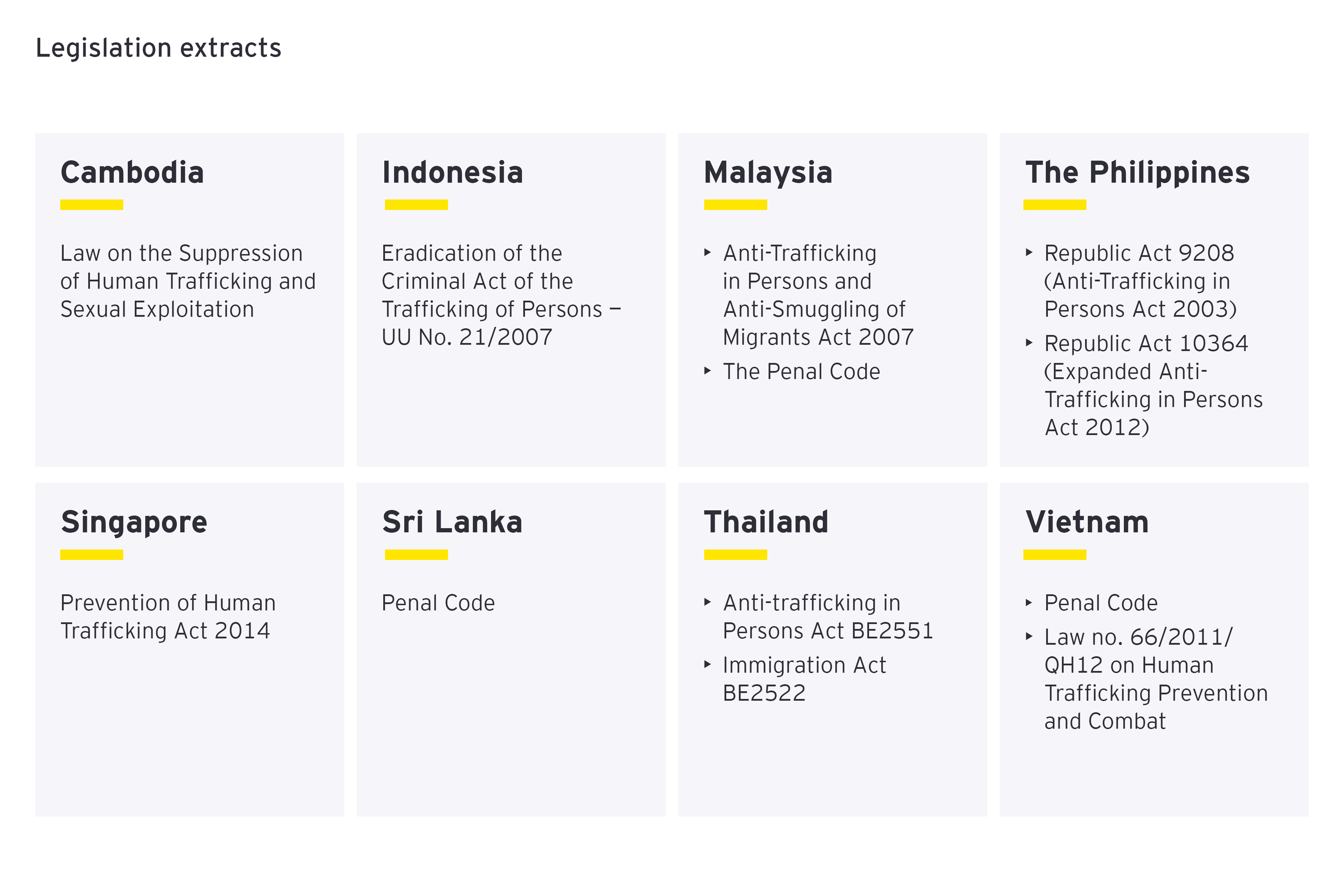EY refers to the global organization, and may refer to one or more, of the member firms of Ernst & Young Global Limited, each of which is a separate legal entity. Ernst & Young Global Limited, a UK company limited by guarantee, does not provide services to clients.
How EY can Help
-
Our team works to give you the benefit of our broad sector experience, our deep subject-matter knowledge and the latest insights from our work worldwide.
Read more
To counteract significant bottom-line pressures, CPR organizations often outsource parts of their supply chains to developing countries. If the business has not adequately assessed human rights issues in its integrity agenda, it may find itself sourcing products from countries with high modern slavery risks. This encompasses the recruitment, movement, harboring or receiving of people (including children) through the use of force, coercion, abuse of vulnerability, deception or other means for the purpose of exploitation.
In the light of recent corporate scandals, modern slavery has become an integral component of many investors’ environmental, social and governance (ESG) considerations from the perspectives of regulatory compliance and responsible business practices. At the same time, CPR organizations are increasingly cognizant that human rights violations can lead to significant financial and reputational damage.
This heightened awareness of the scale and illegitimacy of human slavery in recent years has led to the introduction of various forms of legislative support. The extraterritoriality of the UK Modern Slavery Act 2015 (MSA) requires companies meeting certain conditions to prepare and publish MSA statements every financial year that set out the steps taken to prevent modern slavery in their business and supply chains. Failure in disclosure could lead to significant fines and reputational damage. While there are no similar reporting requirements yet in Southeast Asia, CPR organizations in this region may still need to provide modern slavery statements if they have business or supply chain connections to UK companies.
Given that the US and EU markets are among the top export destinations for Southeast Asian countries, it is critical for local companies to address modern slavery issues or risk export sanctions, potential reputational damage and business disruption. In 2020 for example, the US Customs and Border Protection imposed a ban on the imports of a renowned Malaysian glove-making company that was found to have used forced labor in its manufacturing process.






